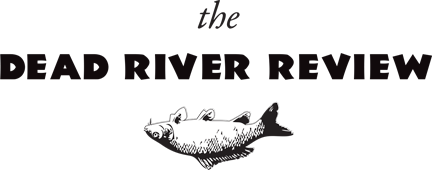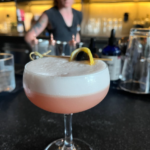By Deklan O’Connor
A friend and I were talking about their job as a Pre-K after-school attendant. There had been an incident where a child had bit another, and my friend off-handedly mentioned that they, of course, of course, could not tell the parents of the bit child who was the biter. The bit child’s parents might contact the biter’s parents and try and reprimand. They might question the biter’s parents’ parenting habits, likely disregarding any voice in the back of the head considering what their own child may have done that led up to being bit. It was here that I mentioned that I had been that child: the biter. They laughed of course because it was decidedly ‘on brand’ for my personality, a personality that is sharp and exacting, notably queer, and slightly aggressive. In my defense, and in defense of this other biting child, we learned something others don’t. So, we bite.
I do not carry directly the memory of the first time I bit someone, but rather only as a story told by my parents. In all other accounts I was not a fussy baby, maybe a tad frantic, but I hardly screamed or cried for long. So, when my sister’s friends continually stuffed me into dress after dress, I must have learned that throwing chubby baby fists and feet meant nothing to them, that the only thing for me to do was to clamp down on the first piece of flesh that passed by my face. They used dolls after this, leaving me with an invaluable lesson. Whatever reason my friend’s student had – like me – they felt that it was necessary to perform a last resort action. We have fists, we have words, we have feet, but sometimes these are not enough. A different kind of action is needed, and how convenient that biting is so inherently feral and equally seen as such. A bite acts as a loud and clear message of “do not touch me” or “leave me alone.” Or like my first, a combination of the two.
The second time I bit someone was a “do not touch” message. My preschool was teaching us ballroom dancing. We were in the cafeteria, circular tables folded in half and wheeled to the edges of the room. For some reason, maybe ambiance, the lights were low. Everyone was paired off and left to stare at each other’s feet to avoid stepping. At one point, my partner and I bumped into another pair. I moved to excuse us – as one does – and was promptly shoved. Having learned my earlier lessons, I grabbed the shover’s arm and clamped down. My preschool didn’t tell my parents who their kid bit either. Just that I had bit someone, and it had been an unfortunate day – maybe with a frowny face on the note home. And it had been an unfortunate day. Any day where a person feels confronted enough to perform a violent act seems to me to be an unfortunate day.
So, what makes the child feel the need to exact this undisciplined and violent act? Like words passed through a child’s ears attached to a context definition, there comes a function attached to elicited experiences. A child who acts with violence only elicits what is explicitly given to them by experience. A child cannot be blamed for containing the experience of violence. Even now, our temporal existence is compared to barely a yawn drawn out from God’s mouth. How separate could we possibly be, as a whole, from the violence of creation? Volcanoes and lightning storms, sun rays baking an unshielded surface.
Better yet to ask how a child is fundamentally closer to the living experience of the elderly than that of their own parent’s lives. If our teeth lasted longer, I am sure our elderly would bite more frequently, too. The implant of dentures may be akin to the unsureness of a lost limb or appendage. The elderly might bite out of fear at their lasting inherent dependency, occurring once again at the end of their lives, a simple state of disrepair.
There doesn’t seem to be anything else for a child with violence to do other than to perform it. The biting child chooses this violence because they know something the bitten child does not. They know something about the bitten child that others do not. The third time I bit someone coincides with the fourth time I bit someone, as it was the same someone I bit in both circumstances. I can hardly remember that third time I bit someone, only that it was during summer camp and that they were an unpleasant person to be around. My fourth biting was at school after I had been lifted into the air Heimlich-style and an object was being ripped from my hands. I bit the ripping hands. Some years later, they were the first to introduce me to the idea that being trans made me inhuman, but even at the time I knew something about this person that compelled my teeth to act in ways that broke manners.
A state of disrepair comes naturally after the bite. The little dents become windows, mirrors into a world seen so differently from so many different angles. The biting child has merely discovered their teeth. They have an angle of carrying weaponry sheathed behind meek, unpracticed manners. A biting child has the misfortune of learning something others have to be taught – the human being is violent. The child learns something else when biting, though. They learn when violence is carried within the individual, it ought to be hidden away, regardless of compelling emotions.
Humans carry violence among an arsenal of platitudes to quell this violence with. Maybe it is as simple as some of us being unable to contain it well enough. And there can be any manner of emotions behind a bite. Our violence spilling over those white ridges. Something our minds learned from our bodies, and the discomfort of having one. Fear twists a bite, showing tear marks and drawing blood effortlessly. Anger makes the dents deeper, and the bruising lasts longer. Sadness wets its mark, frantic there might be many. These bites might come as retaliation or as instigation. They might come once and never again, or happen as a habit. The biting child is just a little bit closer to what used to be home, to the stasis of human. The biting child does not bite with happiness.








